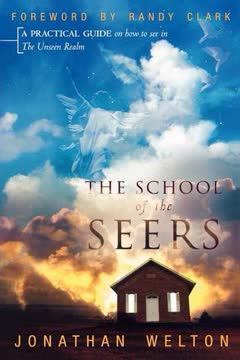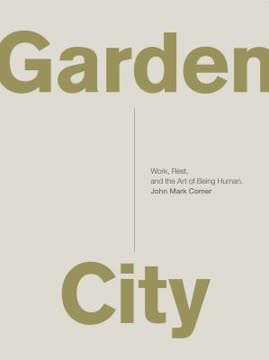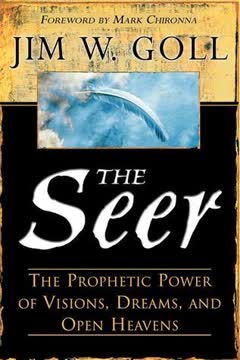Key Takeaways
1. The Seer Anointing: A Divine Invitation
The seer anointing is a current invitation from God for the Church in this hour.
God's invitation. The seer anointing is a divine invitation for the Church to see what the Father is doing and join Him. Author Jonathan Welton's personal journey began with a prophetic word from Dennis Cramer, activating a new gifting to see colors, words, body parts, fire, water, angels, and demons in the spirit realm. This initial sovereign activation was followed by a period where God taught him to "flip the switch" and activate the gift by faith.
Activating the gift. Like all gifts of the Holy Spirit, the seer anointing requires faith to activate. Just as Jesus commanded acts of obedience for healing, believers must cooperate with the Spirit to engage this gift. Welton's experience in Brazil, where a powerful angelic encounter intensified his spiritual sight, underscored the importance of intentional faith in developing this anointing.
New mantle. This profound experience in Brazil, marked by fire and water, signified a "new mantle" for Welton, increasing his vision and understanding of the spirit realm. This personal journey became the foundation for his call to teach others how to safely and biblically interact with the unseen, emphasizing that the supernatural can become a normal way of life for believers.
2. Activate Your Spiritual Senses
We already have spiritual eyes and ears. What we need is to have them opened.
Beyond physical senses. Humans possess three sets of five senses: physical, soul, and spiritual. While physical senses interact with the natural world and soul senses with the interpersonal realm, spiritual senses are designed to interact with the spiritual realm. The gift of discerning of spirits functions primarily through these spiritual senses.
Focus on purity. Matthew 5:8, "Blessed are the pure in heart for they shall see God," is a key to activating spiritual sight. Purity here means a heart singularly focused on God, free from the "dross of life" and distractions. When our hearts are aimed entirely at the Lord, we position ourselves to "see God" and experience His presence.
Engaging imagination. The imagination is the "meditation organ" of the spirit, a creative conduit through which God often communicates. Instead of dismissing imaginative thoughts as "just my imagination," believers should consecrate their spiritual senses to the Lord, allowing Him to speak through spiritual taste, touch, smell, sight, and sound, as demonstrated in biblical examples and personal testimonies.
3. Impartation: A Foundational Key to Growth
For I long to see you, that I may impart to you some spiritual gift, so that you may be established...
Biblical foundation. Impartation, the transfer of spiritual gifts or anointing through the laying on of hands, is a foundational doctrine in Christianity (Hebrews 6:1-2). It's an intentional act, directed by the Holy Spirit, where one person gives what they possess to another, as seen with Moses and Joshua, Elijah and Elisha, and Paul and Timothy.
Individualized process. Impartation is not a one-size-fits-all event; God mercifully gives each person what they can handle, aligning with their character and hunger. It functions like a seed planted in soil: its growth depends on the receiver's heart condition, spiritual nourishment (time in the Holy Spirit, light of Jesus), and the "pressure" of life's trials that can cause the seed to sprout.
Stewardship and possession. Crucially, one can only impart what they genuinely possess. It's not about declaring something you don't have, but intentionally transferring a measure of the anointing that abides within. Understanding this prevents misapplication and superstition, ensuring that impartation serves to establish and mature believers in their spiritual walk.
4. All Believers Can See: Beyond Limited Gifting
If Paul believed that only certain Christians could see in the spirit, then why would he be wasting his time praying for all the Ephesian believers to have the eyes of their understanding enlightened?
Universal access. The notion that spiritual gifts are limited to a select few is a misunderstanding that has hindered the Church. Scripture indicates that all believers can and should operate in spiritual gifts, including spiritual sight. Paul's prayer for the Ephesians to have their "eyes of understanding enlightened" (Ephesians 1:18) demonstrates God's desire for universal spiritual perception.
Three levels of gifts. Spiritual gifts operate on three levels: the faith level (where all can function, e.g., "you can all prophesy"), the gift level (where some have a specific, consistent gifting), and the office level (a calling for a few, e.g., prophet or seer). This framework clarifies that while not everyone holds the office of a seer, all can develop their spiritual senses to discern good from evil (Hebrews 5:14).
Biblical mandate. Numerous scriptures affirm that spiritual eyes should be functioning in every believer. From Elisha praying for his servant's eyes to be opened (2 Kings 6:17) to Jesus's counsel to anoint our eyes to see (Revelation 3:18), the Bible consistently calls for spiritual sight. Hindrances like hate can blind spiritual eyes, emphasizing the need for love in discernment.
5. The Unseen Realm: More Real Than You Think
The truth is that the spirit realm is far more real than the physical realm.
Eternal reality. Paul's distinction between the "seen" (physical, temporary) and "unseen" (spiritual, eternal) realms highlights a profound truth: the spiritual realm is not just as real, but more real than the physical. We are one heartbeat away from existing entirely in this unseen dimension, which began before the physical world and will continue infinitely.
Biblical encounters. Scripture is replete with examples of individuals interacting with the unseen realm:
- Elisha and his servant: Elisha saw chariots of fire, and his servant's eyes were opened to see them too (2 Kings 6:13-17).
- Daniel: He saw a man of brilliant appearance, while his companions sensed a strong presence and fled (Daniel 10:4-7).
- Apostle John: On Patmos, he was "in the Spirit" and saw profound visions, sometimes physically affected (Revelation 1:9-18).
- Balaam's donkey: The donkey saw an angel with a drawn sword before Balaam did, demonstrating animal awareness of the spiritual (Numbers 22:21-27).
Neutral plane. The unseen realm itself is neither inherently good nor evil; it is simply a plane of existence. Both angels and demons operate within it, as does Jesus. Dismissing this realm as solely demonic cuts believers off from a legitimate way God communicates, emphasizing the need for discernment rather than denial.
6. Discerning Spirits: A Gift of Love, Not Judgment
Discerning of spirits is looking at anything in life through the eyes of Jesus.
Supernatural insight. Discerning of spirits is a supernatural gift from the Holy Spirit, distinct from natural intuition. It provides awareness of the spiritual atmosphere, categorizing information into four areas: the Holy Spirit, heavenly spirits (angels), the human spirit, and demonic spirits. This gift is meant to be operated through love, not criticism, suspicion, manipulation, or condemnation.
Three types of judgment. The Greek root words for "judgment" reveal nuances: anakrino (to distinguish, always appropriate), dokimazo (to test or prove, sometimes appropriate), and krino (to condemn, never a Christian's role). Jesus calls us to "judge with righteous judgment" (John 7:24), meaning discernment should align with His loving, redemptive nature.
Five filters for truth. To navigate discernment accurately, five filters are essential:
- Agreement with Scripture: The Bible is the ultimate, unchanging truth.
- Outward Fruit of the Source: Does it align with the fruit of the Spirit (Galatians 5:22-23)?
- Anointing of the Holy Spirit: The anointing guides us to truth (1 John 2:27).
- Peace of Christ: Inner peace acts as an "umpire" (Colossians 3:15).
- Ways and Nature of God: Does it align with God's character (Psalm 103:2-7)?
These filters help distinguish divine communication from other influences, ensuring discernment is pure and constructive.
7. Unlock Spiritual Gifts Through Faith & Meditation
Faith is the key that unlocks every door to experiences.
Faith for experience. Faith is not merely mental agreement but an active key that unlocks every door to spiritual experience, from salvation to intimacy with God. "We walk by faith, not by sight" (2 Corinthians 5:7), meaning faith enables our spiritual eyes to perceive the unseen and enter into the glorious riches of God's promises.
Four keys to increasing faith:
- Fasting and Prayer: Builds faith for breakthrough and deliverance (Matthew 17:15-21).
- Praying in the Spirit: Edifies and builds up "most holy faith" (Jude 1:20).
- Hearing the Prophetic Word (Rhema): Faith comes by hearing God's timely, personal word (Romans 10:17).
- Fellowship with People of Faith: Iron sharpens iron, mutually encouraging faith (Romans 1:12b).
Biblical meditation. The imagination is the "meditation organ" of the spirit, a powerful conduit for God's communication. Biblical meditation, unlike secular practices, involves filling the mind with:
- Good things (Philippians 4:8)
- The Word of God (Joshua 1:8)
- Prophetic words (1 Timothy 4:14-15)
- The Lord Himself (Psalm 63:6)
- The works of God (Psalm 77:10-12)
This practice allows believers to engage interactively with the "living and active" Word, entering into its spiritual realities and experiencing "heavenly rooms" of revelation.
8. Worship in Spirit and Truth: Entering Divine Reality
Worship must take place in spirit and in truth.
New Testament worship. Jesus redefined worship, shifting its location from physical mountains or Jerusalem to "spirit and truth" (John 4:21-24). This means engaging God, who is Spirit, in the spiritual realm, touching and tapping into spiritual reality rather than merely performing physical acts. The Holy Spirit, as the "Spirit of reality," guides us into this deeper, living, and organic worship.
David's tent restored. The Old Testament Tabernacle of David, characterized by constant, interactive worship led by seers, is the only worship model carried into the New Testament. Amos 9:11 prophesied its restoration, fulfilled in Acts 15:15-18, signifying a worship accessible to all people, at all times. This restoration includes the re-emergence of seers in worship, leading to songs from Heaven and angelic encounters.
Interactive experience. Strong worship creates a tangible manifest presence of God, as seen in the wind of the Spirit at a Brazil conference. Believers can actively engage in this spiritual experience by setting aside distractions, putting on worship music, and asking the Lord to reveal what is happening in the spirit realm around them. This interactive worship allows for deeper encounters and breakthroughs.
9. Stewardship of God's Secrets: Wisdom and Responsibility
Surely the Lord God does nothing, unless He reveals His secret to His servants the prophets.
Divine trust. God desires to share His secrets with His people, even limiting His actions until He has someone to reveal them to (Amos 3:7). This privilege comes with a weight of responsibility. Believers are "entrusted with the secret things of God" (1 Corinthians 4:1), and how they steward these revelations determines their capacity for deeper insight.
Accountability for revelation. "From everyone who has been given much, much will be demanded" (Luke 12:48b). Greater revelation brings heavier responsibility. Wisdom and discernment are crucial in deciding when and with whom to share divine secrets. Prematurely revealing a secret can lead to criticism, broken trust, or even the revelation being used against the individual, as seen in the stories of Joseph and Samson.
Lessons from history.
- Joseph: His early sharing of prophetic dreams led to his brothers' hatred and jealousy (Genesis 37:8-11).
- Samson: Revealing the secret of his strength to Delilah resulted in his capture and blindness (Judges 16:17, 19).
- King Hezekiah: His indiscretion in showing all his treasures to Babylonian envoys led to a prophecy of future plunder (2 Kings 20:13-18).
These examples underscore the importance of faithfulness in keeping God's secrets, proving trustworthiness for greater power and protection.
10. Spiritual Warfare: Fighting from Victory, Not for It
We are not fighting for victory; we are fighting from victory.
Identity in Christ. True spiritual warfare is rooted in understanding our identity and authority in Christ. Believers are "in Him," "seated with Him in heavenly places," and "more than conquerors." This means we fight from a position of victory, not for it, as Jesus already triumphed over the devil on the cross.
Satan's defeat. Colossians 2:15 describes Jesus "disarming the powers and authorities" and making a "public spectacle of them, triumphing over them by the cross." This is a Roman metaphor of a conquering general dragging vanquished foes, stripped and chained, behind his chariot. Satan is utterly defeated, naked, and powerless; his only remaining weapons are lies, manipulation, temptation, and accusation.
Resist and stand. Our strategy against the devil is to "resist him, standing firm in the faith" (1 Peter 5:8-9). We are not trying to win a battle, but to enforce and maintain the victory Jesus already secured. By identifying and resisting satan's lies with God's truth, we prevent ourselves from stepping out of Christ's chariot of triumph and into unnecessary bondage.
11. Spiritual Maturity: Embracing Your Identity in Christ
The true course of growth as a Christian is progressively understanding the fullness that we have received in Christ more and more each day.
Identity, not achievement. Spiritual maturity is not about achieving disciplines or fighting more devils, but about a progressive revelation of our identity and position in Christ. Growth is receiving what Jesus already accomplished, walking in grace, and understanding who we are as beloved children of God. This understanding naturally leads to self-control and a life overflowing with joy, peace, and freedom.
"Greater levels, greater devils" reinterpreted. The common saying "greater levels, greater devils" is often misunderstood. As believers grow in their understanding of identity and authority in Christ, lower-level demonic forces lose their ability to influence them. While higher-level demons might still attempt to tempt, the overall spiritual warfare decreases because the believer operates from a position of greater authority, making them "untouchable" as John the Apostle experienced.
Revelation is key. Understanding our "glorious inheritance" requires a "Spirit of wisdom and revelation" (Ephesians 1:17-18), not just intellectual knowledge. This revelation shifts our focus from battling external forces to embracing our internal reality in Christ. By focusing on our identity, we move beyond being "seer orphans" struggling with insecurity and fear, into a secure and powerful walk with God.
12. The Restoration of Discernment: A Bridge to Unity
The gift of discerning of spirits will be the next gifting restored to the Church.
Progressive restoration. The Kingdom of God is inherently progressive, moving "from grace to grace," "strength to strength," and "glory to glory." Historically, eight of the nine gifts of the Holy Spirit have undergone periods of restoration in the Church, from tongues and interpretation (Azusa Street) to healing (Voice of Healing) and prophecy (Kansas City Prophets).
The final frontier. The gifts of miracles and discerning of spirits are the last to be fully restored. While miracles are seeing a resurgence globally, discerning of spirits remains largely misunderstood and neglected. Its restoration is crucial because it is the "final bridge" to a movement of unprecedented love and unity in the Church.
Unity through love. When the Body of Christ learns to see each other "through the eyes of Jesus" (discernment), it will foster a profound, God-like love. This love will break down denominational divisions, leading to the fulfillment of Jesus's prayer for unity ("that they may be one as We are one," John 17:21) and Paul's vision of the Church reaching the "unity of the faith" (Ephesians 4:11-13). The restoration of discernment is therefore essential for the Church to fully express God's heart of love and prepare for the New Heaven and New Earth.
Last updated:
Review Summary
The School of the Seers receives mixed reviews, with most readers praising its insights into the spiritual realm and practical exercises for developing spiritual gifts. Many find it enlightening and biblically sound, appreciating the author's approach to explaining complex concepts. Some readers report personal growth and a deeper understanding of their spiritual experiences. However, a few critics argue the book lacks depth, contains inaccuracies, or promotes potentially dangerous spiritual practices. Overall, the book is well-received by those interested in exploring supernatural Christian experiences.
Similar Books
Download PDF
Download EPUB
.epub digital book format is ideal for reading ebooks on phones, tablets, and e-readers.










